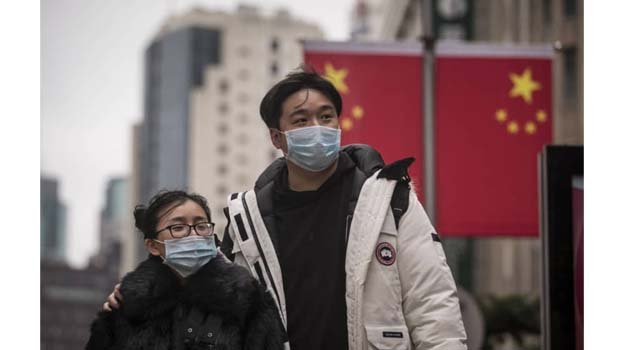WHO should demand more of China

Late last month, the World Health Organization began offering to send an international team of experts to China to observe and help with the outbreak of a novel coronavirus.
On Monday, that team of experts was finally allowed to start its investigations. The Chinese government, however, will not let them visit epidemic-stricken Hubei province or the city of Wuhan, the likely source of the virus now called Covid-19 and the site of the largest quarantine in history.
According to one prominent Communist Party-controlled news outlet, Hubei is simply too busy and “cannot spare the time and people to receive the experts.”
For weeks, the World Health Organization and its director general, Tedros Adhanom Ghebreyesus, have been under fire for a tepid and slow-moving response to the deadly new virus — an approach that appears overly deferential to China’s political demands.
Some of the criticism is unfair. The WHO cannot organize a response to a global health emergency if the country at its center won’t cooperate. But recent history shows that too much political deference in a health emergency is a global risk in its own right. The WHO is uniquely positioned to demand more from China. It needs to do so now.
Since its founding in 1948, the WHO has been the United Nations agency responsible for coordinating global health. Much of its work is preventative. But in the event of an outbreak that threatens other states, the WHO can declare a public health emergency of international concern, which serves as a kind of SOS beacon, marshaling resources from around the world to contain infections. It’s a controversial move, and has often been mired in politics. During the 2014-2016 West African Ebola outbreak that killed 11,310 people and infected more than 28,000 others, the WHO waited months to declare an emergency, in part out of fear of offending affected African governments and damaging their economies. By the time the emergency was declared, almost 1,000 people had died and the virus was nearly out of control.
In the years after the Ebola outbreak, the WHO acknowledged the problems in its response and underwent reforms designed to depoliticize its work and make future responses more effective. But no degree of reform could prepare the WHO for the politically sensitive task of declaring, monitoring and assisting a global public health emergency in China.
The reasons are several, including the government’s aversion to being perceived as needing the help of outsiders, a desire not to repeat the political and economic disruptions associated with the 2002-2003 SARS outbreak, and a natural inclination to secrecy in all matters. Meanwhile, China is not only the world’s second-largest donor to the WHO, but also a major donor to global health projects that matter to the WHO beyond the current outbreak. That leverage gives the country a nearly unparalleled ability to push back against the agency’s demands.
For weeks, the World Health Organization
and its director general, Tedros Adhanom Ghebreyesus,
have been under fire for a tepid and slow-moving
response to the deadly new virus — an approach that
appears overly deferential to China’s political demands
Under such circumstances, it’s understandable that the WHO and Tedros have trodden carefully in their public statements about China’s response to the crisis — even when they know better. The WHO is undoubtedly frustrated by China’s well-documented efforts to cover up the early stages of the outbreak, but the agency realizes that airing such grievances will most likely only inhibit cooperation. Yet the WHO has gone beyond just keeping quiet.
It’s also cultivated Chinese goodwill by amplifying its leaders’ wish that the global community not close borders, or halt travel and trade (a preference largely in keeping with the WHO’s guidelines and scientific evidence). The agency did eventually declare an international public health emergency, but it was later than many experts would have liked.
China has not been shy about reciprocating in its own way. State media has effusively praised Tedros and the WHO while the government has allowed scientific data to flow to the global health community. That’s a start, but it’s not enough. During previous public health emergencies, the WHO has organized international teams of experts to travel to source countries to make field investigations into the clinical and epidemiological features of the new illness. It’s a critical component of any emergency health response. China’s unwillingness to allow such a team to visit the center of the outbreak not only denies its citizens — and the world — the best possible expertise in dealing with the outbreak, but also undermines confidence in the information that China is providing. In short: What is China hiding?
Unfortunately, the world has faced this problem before. In 2003, during the SARS epidemic, it took months — and severe international criticism and pressure — before China opened Guangdong province, the source of the epidemic, to an international team of epidemiologists.
At the time, the WHO was among the organizations leveling some of the most severe criticism. Seventeen years later, the WHO and its current director shouldn’t hesitate to learn from that past. Politics has its place in global health. But ultimately, the WHO must serve the interests of a global community at risk. Since early December, the WHO and its leadership have politely deferred to China. That should end now.
Adam Minter is a Bloomberg Opinion columnist. He is the author of “Junkyard Planet: Travels in the Billion-Dollar Trash Trade” and the forthcoming “Secondhand: Travels in the New Global Garage Sale.”



